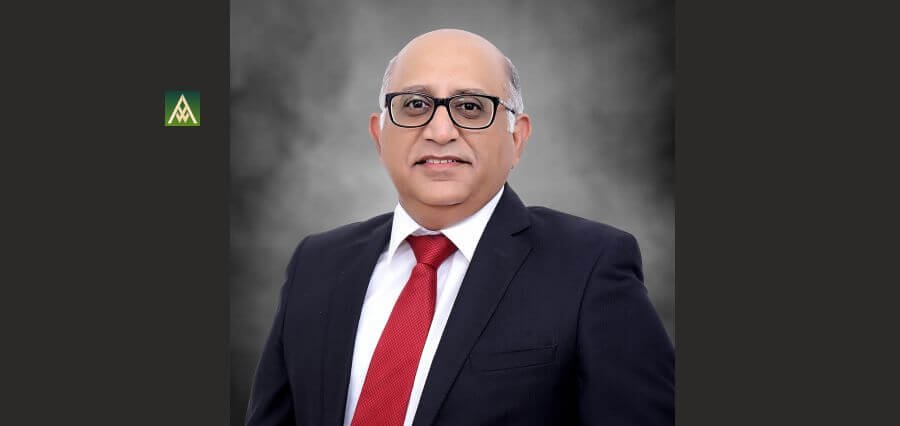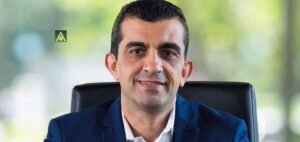The oil and gas sector commands a dominant position across a wide spectrum of businesses in the modern industrialized landscape. This industry’s far-reaching impact links and maps people and places globally, presenting immense opportunities to empower billions worldwide.
As a seasoned finance professional with over 20 years of experience in the Middle East, Africa, and Asian subcontinents, Dhiraj Wadhwani currently serves as the Chief Financial Officer of Al Gharbia Pipe Company LLC, a technologically advanced LSAW pipe manufacturer. In this capacity, he has supported investors, boards, and C-level executives in navigating the complexities of the business environment, particularly within the oil and gas sector.
Motivated by a progressive approach to transforming lives, Wadhwani is poised to leverage his extensive knowledge and strategic vision to drive positive change in the oil and energy sector. His diverse functional expertise, coupled with strong technical skills, and international credentials equips him to deliver innovative solutions that address the evolving needs of the industry and its stakeholders.
Below are the interview highlights:
Can you please introduce yourself and your motivation to embark on this sector?
Transforming lives is an essential part of the broadminded nature and pattern of human evolution. The oil and gas sector today commands dominion over a wide spectrum of businesses that it throttles in the modern industrialized landscape, linking and mapping people and places far and wide. This provides immense opportunities to empower billions of people across the globe.
With over two decades of experience in the Middle East, Africa, and Asian Sub-Continent as a Chief Financial Officer, supporting Investors, Board & C-Level Executives, I am accustomed to providing solutions to varied aspects of business complexities in the region with a wide spectrum of functional knowledge.
Could you please give a brief introduction to your company and its inception story?
Al Gharbia Pipe Company LLC (AGPC) is a joint venture between partners:
ADQ, a public joint stock company (PJSC) and the UAE’s largest industrial investment holding company in Abu Dhabi is mandated to accelerate the transformation of the Emirate into a knowledge-based economy. As an asset owner and a sustainable investor, ADQ seeks out compelling opportunities across economic clusters that are critical to realizing Abu Dhabi’s economic vision, including Energy & Utilities, Food & Agriculture, Healthcare & Life Sciences and Transport & and agriculture, healthcare and life sciences, and transport and logistics.
JFE Steel, the 2nd largest steel manufacturer in Japan, with its integrated steel works, manufactures high-quality plates of API/DNGVL and international . standards used for subsea sour service pipelines and structural applications.
Marubeni Itochu Steel, with its global reach through a network of 100 offices in 26 countries, is a provider of commercial and logistical support to some of the world’s largest oil and gas companies.
Established in May 2015, AGPC is one of the most technologically advanced Longitudinally Submerged Arc Welded (LSAW) carbon steel pipe manufacturers in the world and one of the first large-scale manufacturers to embrace Industry 4.0. Our factory is equipped with highly advanced Artificial Intelligence (AI) technology ensuring that every pipe produced is consistently of the highest quality and standards.
What are the biggest challenges facing the Arab oil and energy sector today, and how are you working to address them?
Having a sustainable, consistent, and uninterrupted supply of energy is a challenge faced by the sector worldwide with the growing number of black swan events. With geopolitics and market disruptions influencing perceptions from regional to global and vice versa; creating and nurturing regional facilities capable of scaling and servicing both local and international opportunities is vital, which has led to key strategic decisions in this direction.
How has the global shift towards renewable energy sources impacted your country’s oil and energy strategies, and what steps are being taken to adapt?
On the back of strong fundamentals and trends in CAPEX in oil and gas that currently stand higher than in the recent past globally, maintaining the momentum driven by demand, there has been an increase in the number of development projects, both onshore and offshore. This suggests leading players focusing on discovering means of better and alternative solutions while ensuring consistency in supply to match growing anticipated demands.
Initiatives are being taken for considerable investments to facilitate research and development in renewable sources of energy. To catapult this drive towards alternative sources, AGPC’s capability significantly contributes toward the objective of developing a hydrogen network and carbon capture and storage.
What role do you see natural gas playing in the future energy mix of Arab countries, and how are you working to develop this resource?
In the near term, with the objective of positive impact and the ability to achieve measurable results, countries are focusing on cleaner options such as LNG, which requires greater volumes of LSAW pipelines that are expected to witness growth.
Hence, we see AGPC today as leading the way forward, having setup its capabilities in the UAE, strategically positioned to service the markets regionally, and to complement requirements as certain geographies with existing setups of HSAW and ERW line pipes lack the alternative facilities of LSAW pipe manufacturing and must achieve their energy goals of transitioning to cleaner energy.
How are you working to attract foreign investment and technology to modernize and expand your country’s oil and energy infrastructure?
AGPC, under the guidance of visionary leaders and stakeholders, has collaborated to bring in the best technology, create state-of-the art manufacturing facilities, put in place best practices, and enhance the skillsets of its human capital, which are very important for ensuring the safety and well-being of its people while providing efficient services to the community at large. All this has been possible with the will and commitment requiring huge investments and imbibing the latest technologies.
What measures are being taken to improve energy efficiency and reduce carbon emissions in the Arab oil and energy sector?
In a conscious attempt to contribute towards reducing carbon emissions and improving energy efficiency, AGPC has assessed its position and taken measurable steps for reducing energy consumption by using energy-efficient devices, LED lighting, improving insulation, etc.
It has implemented sustainable green practices to reduce waste, adopted recycling processes, educated employees about promoting a culture of sustainability, and look out for opportunities to lower carbon emissions while enhancing marginal products.
How are you working to develop a skilled and knowledgeable workforce to support the future growth of the Arab oil and energy sector?
Definitive actions have been implemented by AGPC to enhance the skills and knowledge of its human capital. Continuous efforts and resources are being deployed on in-house and outsourced training to maintain, upskill, and prepare personnel for knowledge warranted and upgrade.
Internship programs to develop a local and international pool of talent are actively pursued under various exchange programs throughout the year. The company has sponsored various learning initiatives to support growth and innovation, which has resulted in unique approaches to improving processes and leading to efficiencies that have enabled the company to increase throughput.
What role do you see renewable energy sources such as solar and wind playing in the future energy mix of Arab countries, and what investments are being made in these areas?
The region is committed toward the common goal of sustainability and diversification under the specific directives to reduce carbon footprints, generate enough solar, wind, and nuclear energy to power greater numbers of homes, and scale up blue and green hydrogen production. AGPC has dedicated resources for carrying out experimental activities, is committed to research and development to enable the energy transition.
How is the Arab oil and energy sector ensuring long-term sustainability and diversifying the economy to reduce dependence on oil revenues?
With an orientation to diversify into alternative sources of energy, clear policies have been put in place and initiatives taken, as mentioned earlier.
How are you engaging with local communities impacted by oil and energy projects, and ensuring equitable distribution of benefits?
Assessment, communication, and collaboration with stakeholders are some of the measures taken to address the concern.




